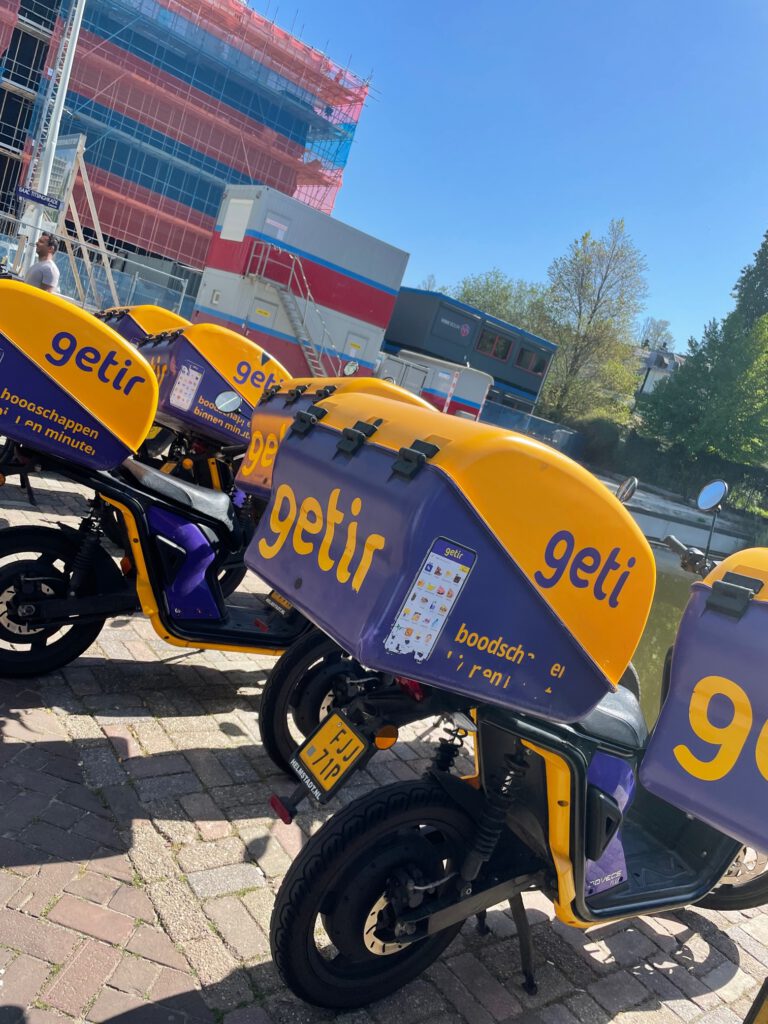Amsterdam bans the quick commerce dark stores of Getir, Flink, Zapp, and Gorillas to industrial parks. The dark stores are no longer welcome in residential areas or mixed residential-working areas with shopping, bars, and restaurants.
A specific combination of concerns makes the establishment of dark stores in residential areas and mixed zones impossible, says the municipality unless the specific local circumstances allow it. The establishment of dark stores in shopping streets is thereby excluded, as a dark store does not add enough to a shopping street. Industrial parks are the most suitable environments for dark stores, according to the city of Amsterdam.
But, to which industrial park should the dark stores move? Amsterdam is closing one industrial park after another within the Amsterdam Ring Road. Industrial companies have to leave there to make room for new, trendy neighborhoods where the people of Amsterdam live and work. The people of Amsterdam, young and old, will soon be unreachable for the quick commerces services. That simply won’t work from industrial parks outside the ring. The vitality of (new) urban districts lies precisely in offering a good mix of functions, including fast home deliveries. Make room for this and make agreements on it.
Above all, it is an arbitrary ‘legal’ measure. What will the quick commerce deliverers of retailers Albert Heijn, Gall, and Jumbo do? Will the new Amsterdam rules soon also apply to pizza and sushi delivery companies? Should terraces, clubs, restaurants, venues, and fitness centers also move out of the city to industrial parks?

The approach of Amsterdam and other Dutch municipalities makes it seem as if quick commerce deliveries are the only cause of nuisance in residential areas. Legal experts argue that there is no thorough research into the problems. That points to arbitrariness in enforcement, and the principle of equality requires that similar cases be treated equally. Unfortunately, that does not seem to be the case. The majority of dark stores have never received a single complaint. That leaves the matter for the courts.
For every entrepreneur who causes nuisance: solve it! Last week, the quick commerce companies came up with a ‘code of conduct.’ With this, they want to answer the nuisance that local residents experience from the dark stores. The companies are convinced that the concerns that municipalities have about the impact of their delivery services can be addressed with mutual agreements and rules of conduct about, among other things, parking bicycles indoors, making storefront windows transparent, and regulating noise. But unfortunately, they don’t even get that chance.
On Dutch TV Nieuwsuur the Amsterdam alderwoman Marieke van Doorninck talked to Sadik Cevik from Gorillas. The alderman is rabidly ideological against the concept of ‘quick.’ The quick commerce mob comes from Mars, and the alderwoman comes from Venus. The alderwoman is making a wrong decision. Quick commerce can help solve urban problems, such as shop vacancy rates, monofunctional neighborhoods, social control, and inclusiveness. But, the alderwoman has shamelessly slammed the door shut—the end of the dialogue. Nobody benefits from that.
Walther Ploos van Amstel.
